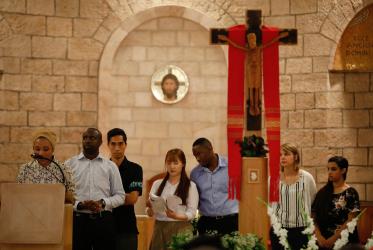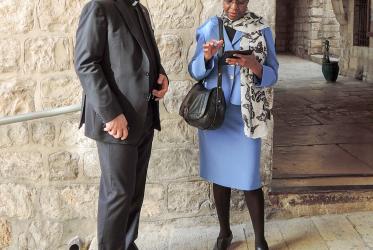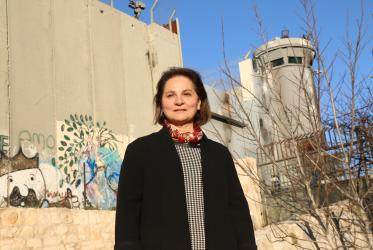Displaying 121 - 140 of 164
WCC gravely concerned over Israel’s travel ban
09 March 2017
Praying for one another, even when we disagree
02 March 2017
Owe Boersma will strive for equilibrium as EAPPI coordinator
18 August 2016
‘Unprecedented times of hopelessness’ in Holy Land
11 July 2016
Palestinian Christians face loss of land
27 April 2016










